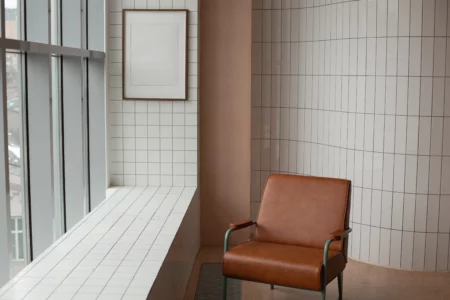 Windowsills are more than just architectural details; they play a crucial role in your home’s aesthetics and functionality. Selecting the right material for your windowsills is essential to ensure durability, style, and ease of maintenance.
Windowsills are more than just architectural details; they play a crucial role in your home’s aesthetics and functionality. Selecting the right material for your windowsills is essential to ensure durability, style, and ease of maintenance.
Today, we’ll explore different materials and their pros and cons to help you make an informed choice.
1. Natural Stone
Natural stone windowsills, like granite, marble, or limestone, exude timeless elegance. They are highly durable and resistant to moisture and heat, making them an excellent choice for areas exposed to direct sunlight or humidity. However, they can be relatively expensive and require periodic sealing and maintenance to prevent staining.
2. Wood
Wooden windowsills offer a warm and rustic appeal. They can be customized to match your interior decor and come in various wood species like oak, maple, or pine. However, wood is susceptible to moisture damage, especially in bathrooms or kitchens. Regular sealing and maintenance are necessary to protect against rot and warping.
3. Composite Materials
Composite materials like MDF (medium-density fiberboard) and PVC are cost-effective alternatives to natural materials. They are moisture-resistant and less prone to warping or cracking. Composite windowsills come in a variety of finishes and can mimic the look of wood or stone. However, they may not offer the same level of luxury or durability as natural materials.
4. Concrete
Concrete windowsills are a trendy choice in modern and industrial-style interiors. They are highly durable, customizable, and resistant to moisture. You can have concrete windowsills polished, stained, or stamped for a unique look. Keep in mind that they may require proper sealing to prevent staining and ensure longevity.
5. Tile
Tiled windowsills are a versatile option that allows you to get creative with patterns, colors, and textures. Ceramic or porcelain tiles are common choices due to their water-resistant properties. Tile windowsills are easy to clean but can develop grout stains over time if not properly maintained.
6. Corian or Solid Surface
Corian and other solid surface materials offer a seamless and contemporary look. They are non-porous, resistant to stains, and can be customized in various colors and shapes. However, they may not be as durable as natural stone and can be more expensive.
Choosing the right material for your windowsills depends on your budget, style preferences, and the specific needs of each room. While natural stone and wood offer timeless beauty, composite materials, concrete, tile, and solid surface options provide practicality and versatility.
Consider the factors that matter most to you, such as durability, maintenance, and aesthetics, to make an informed decision and ensure your windowsills complement your home’s overall design and functionality.
Picture Credit: Pexels



